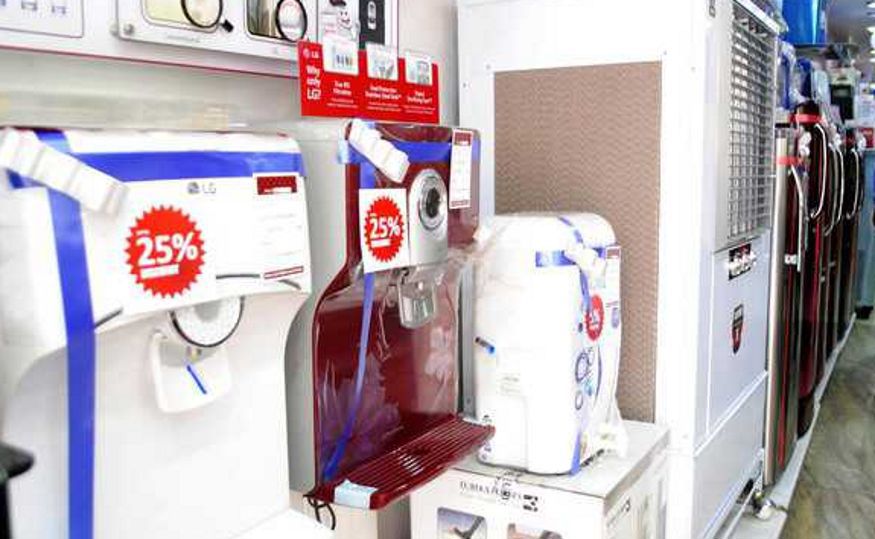Warranty changes on electronic goods
Last fortnight, the Central Consumer Protection Authority (CCPA) took the initial steps towards the much-needed reform vis-à-vis the warranties on electronic goods, when it asked the manufacturers to adopt global best practices.
It is often seen that in respect of quality, after-sales service and also warranties, manufacturers have different standards for different countries, based on the consumer protection laws of that country, the enforcement regime and, of course, the expectations and demands of consumers. Nidhi Khare, Chief Commissioner, CCPA, was obviously referring to this when she urged the manufacturers to make available the warranty upfront, respond to consumer grievances about warranties with alacrity, and ensure that the warranty clock starts ticking from the date of installation and not the date of purchase, as that could considerably reduce the warranty period in respect of goods that need installation.
Some household products like washing machines and dryers, air-conditioners, geysers, refrigerators, electric chimneys, microwaves and dishwashers require a representative of the company to install them. And there could well be a delay in that. Similarly, there could also be a delay in delivery of the product, particularly if you are ordering it online. It is, therefore, only fair that the warranty card is stamped or signed by the person installing the machine, kickstarting the warranty period. After all, the warranty has to begin from the time you start using the machine and not from the time of purchase, particularly when there could be a wide gap between the two.
But that’s just one of the many problems that consumers face in respect of warranties. Since these are drawn up by the manufacturer, keeping only his interest in mind, the warranties are full of disclaimers and highly prejudicial to consumer interest.
In fact, if you see the warranty clauses of manufacturers, you will realise that your warranty period gets reduced not only because it starts from the date of purchase and not the date of installation, but also because many of them say that in case of a problem, the time taken for repair and in transit shall not be excluded from the warranty period. So, if the service centre takes a long time to repair the snag because the required part is not available, your warranty period is further reduced, even though you are not using the product.
Some of the warranties say that if spare parts are not available, the company’s prevailing depreciation rule will be binding on the purchaser to accept as a commercial solution in lieu of repairs! In the absence of any legal stipulation mandating how long manufacturers should make available spare parts, companies are known to force consumers to buy new models on the ground that spare parts are unavailable. Obviously, the price that they offer for the ‘irreparable’ one as an ‘exchange’ offer is too low and exploitative. The absence of standards specifying the life of various household appliances also makes bargaining tough for consumers, besides the stifling warranty conditions.
When you buy an electronic product, do you ever check whether the retailer is an authorised dealer? Well, there are warranties that say that the promises made therein are null and void if the product is not purchased from an authorised dealer!
Again, some of them say that the warranty is not applicable to defects caused while in transit to the service centre or to the purchaser’s residence! I must also mention that some warranties do not cover the cost of transportation, if the product has to be taken to the service centre!
In some cases, the warranty is invalid if the consumer does not fill up and mail a registration card to activate the warranty or register the purchase online. Again, warranty should be available throughout the promised period, but companies say that it is only applicable to the original buyer! Thus, most warranties take away the guarantees at the slightest pretext.
The Consumer Protection Act gives the consumer the right to get defect-free goods and in case of a defect, the right to proper repair, replacement or full refund, depending on the nature of the defect. The warranties offered by manufacturers should fully reflect these rights and be fair to the consumer.
Now that the CCPA has made a beginning, it should constitute a committee to draw up a model warranty that’s fair to both the parties and is easily understood. Or, come up with warranty guidelines for companies to follow. It is also necessary to mandate the availability of spare parts during the life of a product, so that the consumer is not forced to replace it for want of a spare part. This is also extremely important for environment protection, as it reduces electronic waste and is in keeping with the ‘Right to Repair’ movement the world over.









